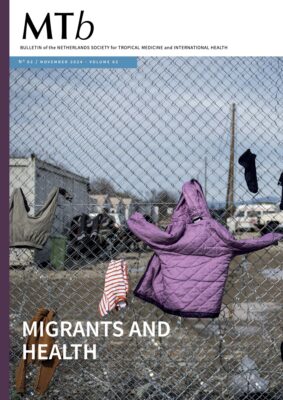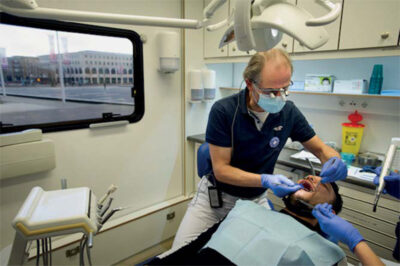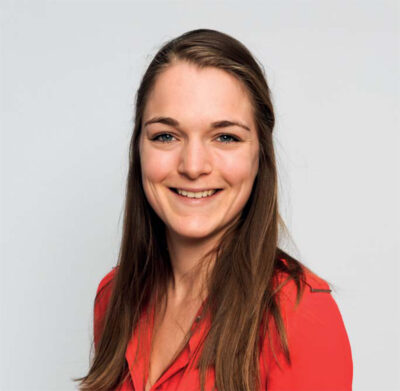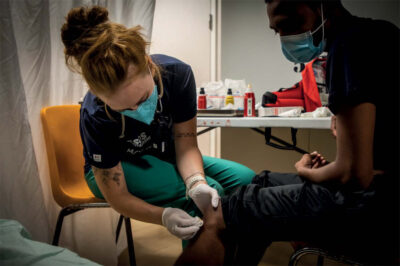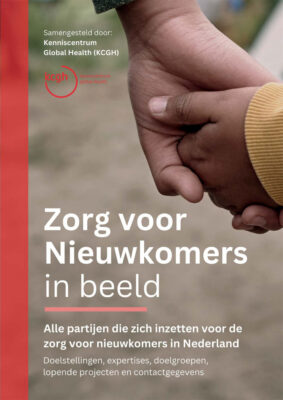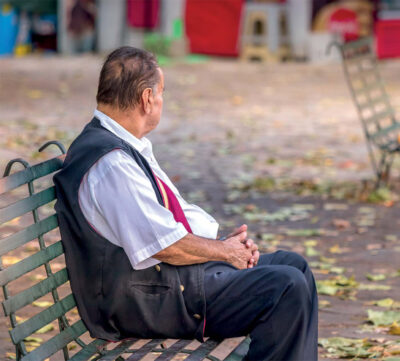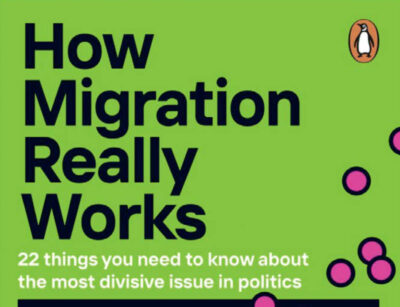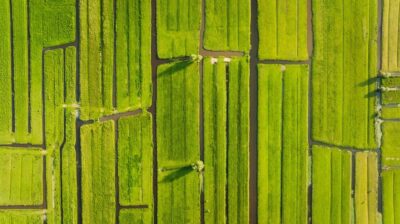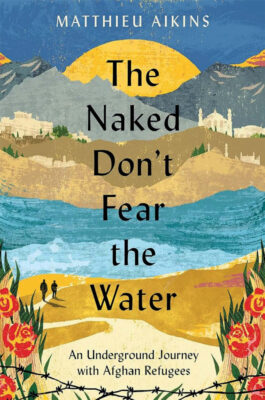
Migrants and Health
Editorial
Talking about the universal in Universal Health Coverage
The cover of this edition of MTb is titled Migrants and Health. At the symposium Care for newcomers on the 9th of October one of the keynote speakers asked the audience what first comes to mind when talking about people newly arrived in the Netherlands. The audience was filled with global health professionals, health and welfare professionals working with asylum seekers and migrants, and so-called ‘undocumented persons’. Responses to this question included ‘migrants’, ‘vulnerable groups’, ‘forced displacement’, ‘access to care’, language barriers’, ‘hope’, and ‘new neighbours’. None of them used the first synonym the thesaurus provides for newcomer: ‘stranger’.
In trying to come up with a suitable title for this edition, we settled for Migrants and Health, although conscious of the fact that some of the articles do not officially belong to these categories. Though treatment and care – health and otherwise – the fact that some of the articles do not officially belong to these categories. Though treatment and care – health and otherwise – for migrants is a hot topic in many of the current political and social debates in the Netherlands and beyond, strangely there is no universally accepted definition of the term migrant. Except perhaps for the definition provided by the UN Department of Economic and Social Affairs referring to international migrants as “any person who changes his or her country of usual residence”, and whereby “despite legal differences between coun tries, migrants and refugees are entitled to the same universal human rights and fundamental freedoms as anyone else”.
And how does that entitlement work out in practice and in the daily lives of ‘people on the move’? In this edition of MTb, you can read about the situation in refugee camps in Lebanon and Greece, and the role of NGOs in civil search and rescue operations at sea as a demonstration of such realities. We present the outcome of research among pregnant women in an asylum seeker centre in the Netherlands – many of them facing high fold risk of perinatal mortality as compared to their general counterparts in the area. In addition, we address the health needs and limitations in accessing health services for people that do not belong to any of these groups, often falling between the cracks. These are persons who may consider themselves also on the move, in any case away from their country of usual residence. The question remains, where can the so-called undocumented persons (defined as someone residing in a country without legal residency status)
go when in need of quality appropriate care? According to universal treaties, they are also entitled to this, under the same universal protection of human rights and fundamental freedoms.
The words of Hannah Arendt in her essay We refugees – written in 1943 shortly after she arrived in New York – still linger on: “In the first place we don’t like to be called refugees. We ourselves call each other “newcomers” or “immigrants” (…) A refugee would be a person driven to seek refuge because of some act committed or some political opinion held. Well, it is true we had to seek refuge; but we committed no acts and most of us never dreamt of having any radical opinion held. With us the meaning of the term “refugee” has changed. Now “refugees” are those of us who have been so unfortunate as to arrive in a new country without any means and have to be helped by refugee committees”. [3] Little seems to have changed, eighty years on.
Esther Jurgens
Ryan Proos
References
- New York Declaration for Refguees and Migrants, paragraph 6
- https://www.who.int/news-room/fact-sheets/detail/refugee-and-migrant-health
[accessed 23 October 2024]
- “We Refugees,” Menorah Journal 31
no. 1 (January 1943): pp 69-77.
















































